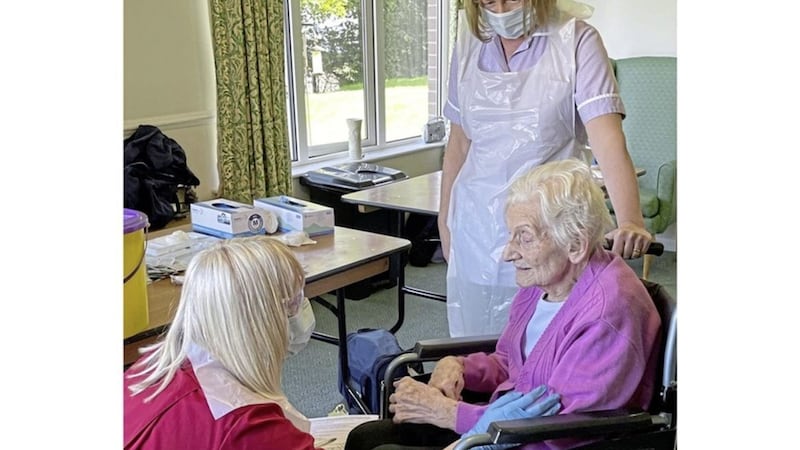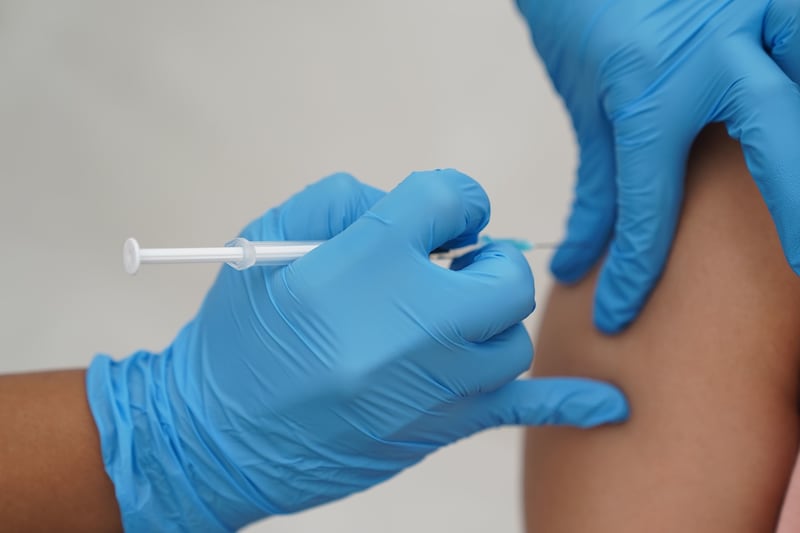A CO Antrim doctor with nursing home patients on his books has called on health chiefs to consider a fourth vaccine dose for the elderly due to waning booster immunity.
Dr John McSparran also raised concerns about the impact of continued isolation on the mental health of vulnerable care home residents following a surge in infections across the sector.
Residents along with staff were among the first group of people to receive booster shots at the end of September.
New analysis released before Christmas claimed that protection offered by boosters against the more transmissible Omicron variant begins to reduce after 10 weeks.
There are currently 190 homes in Northern Ireland tackling "active" coronavirus outbreaks.
On Thursday, Chief Medical Officer Sir Michael McBride said the rise in figures must be viewed in context as around three-quarters were linked to staff members or care partners "as opposed to residents".
But Dr McSparran, who is based in Cushendall and makes regular visits to patients at a nearby nursing home, expressed fears about the spread of Omicron among the frail elderly and those with underlying health conditions.
"A fourth dose is already being given in Israel to the over-sixties and healthcare workers. Why is it not being discussed for here? Are we going to wait until nursing homes and elderly patients are all infected again because of waning immunity? This will have consequences again for hospital services," he said.
"I'm not the expert but I think it's something that needs to be discussed. I'm outside the 10 week period now myself, as I was boosted at the beginning of October because I was going into homes.
"I went to see a lady recently and her mental health has been affected by this because she is more or less confined to her room. The impact of that on these patients in nursing homes is serious - and I don't think anyone has really assessed that."
Meanwhile, the Glens medic said they were finding it increasingly difficult to get more patients boosted.
The Department of Health made a renewed appeal during the week for more over-fifties to come forward. There was high uptake among this age group for first and second doses but levels have dropped off for the booster shot.
"We've sent out loads of text messages and publicised walk-in clinics for the booster," Dr McSparran added.
"We're getting some uptake but we're getting a very poor response now from those that haven't got it at this stage.
"You can't have your staff constantly phoning people to come in to get it.
"We're in a cohort now who probably don't want the booster and aren't going to get it."
When asked for about the possibility of a fourth vaccine dose, a department spokeswoman said: "The Covid-19 vaccination programme is guided by the advice and recommendations provided by the Joint Committee on Vaccination and Immunisation (JCVI) an independent expert advisory committee.
"JCVI constantly review all the available evidence, both published and unpublished, in relation to vaccine effectiveness etc before making their recommendations. At this stage JCVI have not recommended a second booster for any particular group or age group."




